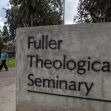The First Amendment has a “ministerial exception” that prevents those in religious roles at their institutions from being sued under anti-discrimination laws. Alexander Behrend v. San Francisco Zen Center (Zen Center), Inc. makes it clear that those who work in non-ministerial roles in religious communities are also covered by the exemption.
A unanimous 3-0 decision by the Ninth Circuit Court of Appeals affirmed the summary judgment ruling in favor of the Zen Center by Presiding District Judge Jacqueline S. Corley of the U.S. District Court for the Northern District of California on July 17. The opinion was authored by Circuit Judge Lawrence VanDyke with concurrences by Ryan D. Nelson and Gabriel P. Sanchez.
Behrend was hired by the Zen Center as a “Work Practice Apprentice” (WPA) in 2014 after he was hurt in a car accident that caused multiple disabilities as well as post-traumatic stress syndrome, or PTSD. After attending several of the Zen Center’s faith-centered activities and volunteering in a food outreach program, he considered himself a “practicing Zen Buddhist.” WPAs live at the Center and follow its designated work schedules.
The plaintiff’s injuries prevented him from continuing in his previous job, and he was unable to pay for his housing. To avoid eviction, in 2016, he asked the Zen Center’s “head of practice” for a job, which also included room and board and a small stipend. His position carried a variety of duties, including guest services, kitchen duties, and the maintenance crew. When maintenance work exacerbated his PTSD, the Zen Center dismissed him from the WPA program. He sued them under the Americans with Disabilities Act, which protects those with disabilities in many aspects of public life.
Judge Corley of the Northern District of California granted the Zen Center’s motion for summary judgment based on the ministerial exemption which allows religious organizations to make employment decisions based on religious reasons for certain employees. Behrend appealed to the Ninth Circuit, arguing that he “performed mostly menial work and did not have a “key role in making internal church decisions and transmitting the faith to others.”
VanDyke’s opinion began by explaining the motions for summary judgment must “view the evidence…in the light most favorable to the non-moving party.” The legal components of the ministerial exemption, he wrote, are grounded in two First Amendment clauses—the Establishment Clause and the Free Exercise Clause that both guarantee that the government cannot interfere with religious organizations’ right to choose their leaders and employees who “personify their beliefs.” Behrend thus claimed the protections are therefore given only to those in the “key roles” of preaching and transmitting the faith.
The opinion disagreed, citing both Ninth Circuit and U.S. Supreme Court precedents. They both stated that all the circumstances of a claimant’s employment must be considered in order to determine whether the plaintiff has a role in “conveying the Church’s message and carrying out its mission.”
Applying this test, the Ninth Circuit broadly interpreted the ministerial exemption to protect the Zen Center’s ability to “determine who may serve in its WPA program.” Van Dyke wrote that while most of Behrend’s work was menial, “there is no genuine dispute that the work itself is an essential component of Zen training and is indistinguishable from other forms of practice.”
Therefore, he concluded “Behrend, as a WPA, surely had a role in carrying out mission.” He went on to cite several examples of cases that held the exemption is not only for the religious institution’s leaders. In other cases, teachers and non-ordained seminarians, as well as monks and cloistered nuns, and rabbis who spent all their time studying Scripture or writing, but who had no part in leadership, were also exempt.
Van Dyke further explained, “…since the purpose of the exception is to ensure a religious organization’s independence in matters of faith, doctrine, and government, surely it applies just as readily to those who perform vital, but not necessarily hierarchical, functions.” And thus, the Zen Center’s WPA program is “no less protected.”
This is because, in addition to his duties that were part of the Zen Center’s maintenance, Behrend was also responsible for helping with rituals, meditations, and services, such as ringing bells, cleaning altars and carrying out other religious duties. Furthermore, he lived and worked at the Zen Center full-time.
The opinion concluded, “… were the court to adopt a rule like the one Behrend suggests, we would be “interfering with the freedom of religious groups to select” who may or may not serve as a live-in monk.”
The opinion also reiterated the U.S. Supreme Court’s decision in Our Lady of Guadalupe, (591
U.S. at 758 n.26.), which specifically addressed whether a leadership role is required. It said, “The purpose of the ministerial exception, to ensure “…the independence of religious institutions” in matters of faith, doctrine, and government would not be served by such a rule.”
The Ninth Circuit concluded, “The religion clauses of the First Amendment give the Center the freedom “to select, supervise, and if necessary, remove a minister without interference by secular authorities.” Because Behrend had a role in …carrying out mission, the Zen Center qualifies for the ministerial exception. Therefore, the district court properly granted summary judgment based on the ministerial exception.”






